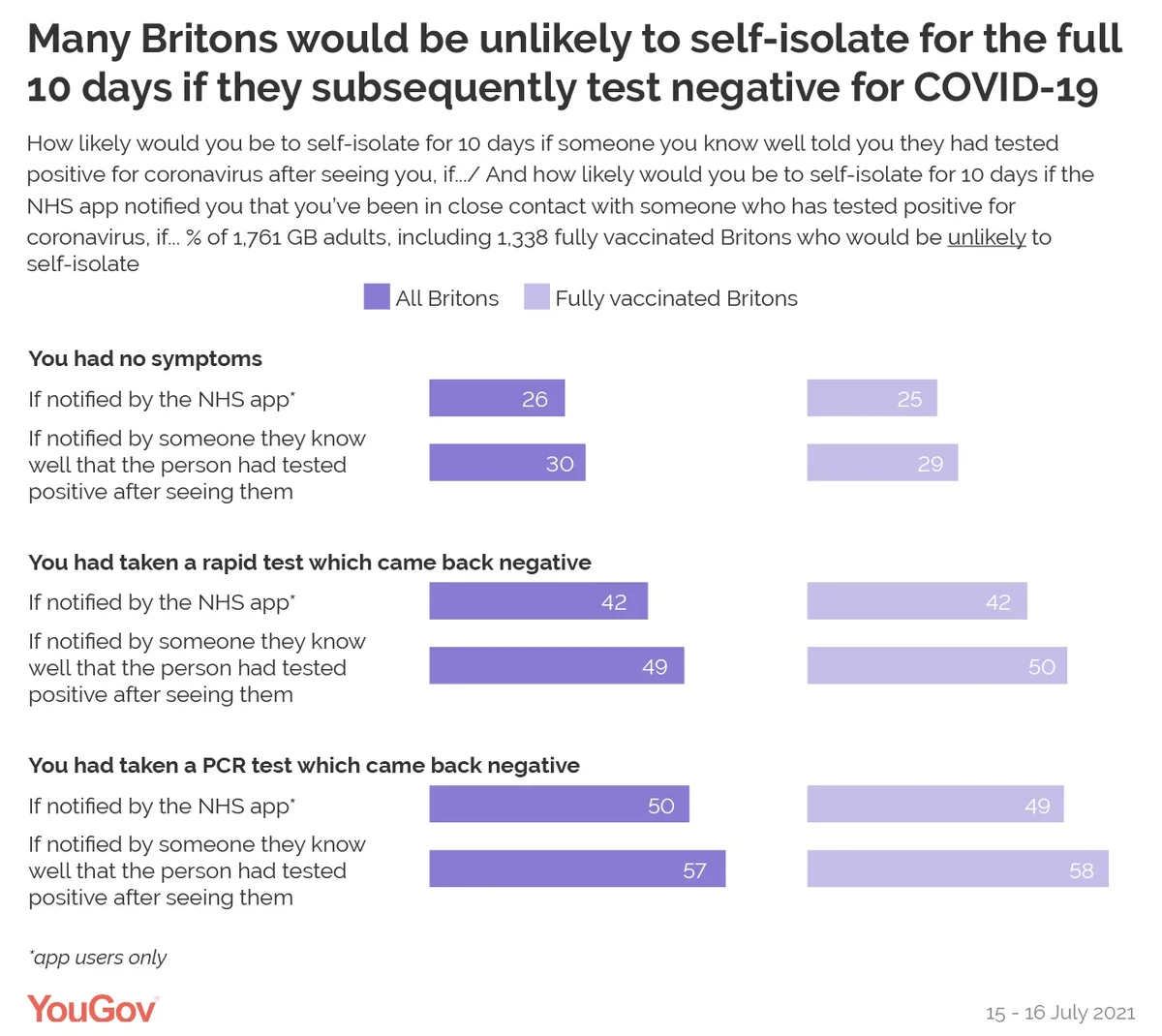Half of Britons say they would be unlikely to self-isolate if they had a negative rapid test after coming into contact with someone with coronavirus
As England lifts restrictions, coronavirus cases in the UK are at the same level as in mid-January, surpassing 50,000 new positive results in a day. With half a million people being asked to self-isolate in only one week, how willing are Britons to stay inside for 10 days regardless of whether they’re vaccinated or have tested negative themselves?
How likely would Britons be to self-isolate?
Around two thirds of the public say they would be likely to self-isolate if they weren’t showing symptoms but were notified of coming into contact with coronavirus by someone they know (63%) or the NHS app (67% of users). But despite many people contracting COVID-19 not experiencing any symptoms, as many as 26-30% say they would be unlikely to self-isolate if they didn’t feel ill.
It is currently a legal requirement to self-isolate for at least 10 days if coming into close contact with someone who has coronavirus. But despite the risk of getting fined, half of Britons (49%) say they would be unlikely to stay home if they subsequently tested negative for the disease. Four in ten (42%) expect that they would. If notified by the NHS, Britons who use the track and trace app would be more likely to isolate even if a negative rapid test confirms they don’t have the disease, at 50% to 42%.

While PCR tests, which are analysed in a lab, tend to be much more reliable than rapid tests, there’s still a high likelihood of a false negative if taken too early – which is why the NHS requires people to self-isolate for 10 days. But only two in five app-users (42%) say they would be likely to continue quarantine after a negative PCR test, while half (50%) would not.
The figure is even lower among people notified by someone they know, with only one in three (33%) saying they likely stay self-isolated, while three in five (57%) would not.
The research didn’t show any significant drop in willingness to self-isolate among people who have had both coronavirus jabs.
“Vaccine hesitant” Britons – i.e. people who refuse to get vaccinated or are unsure whether they want to – are in each scenario much less likely to self-isolate than the average person. For example, only one in three (36%) would be likely to stay home if someone they’d been in contact with tested positive for coronavirus – almost half the rate of the general population. But they’re a small minority, accounting for only 8% of Britons. This figure includes 5% who will not get vaccinated and 3% who are yet to make up their mind.









